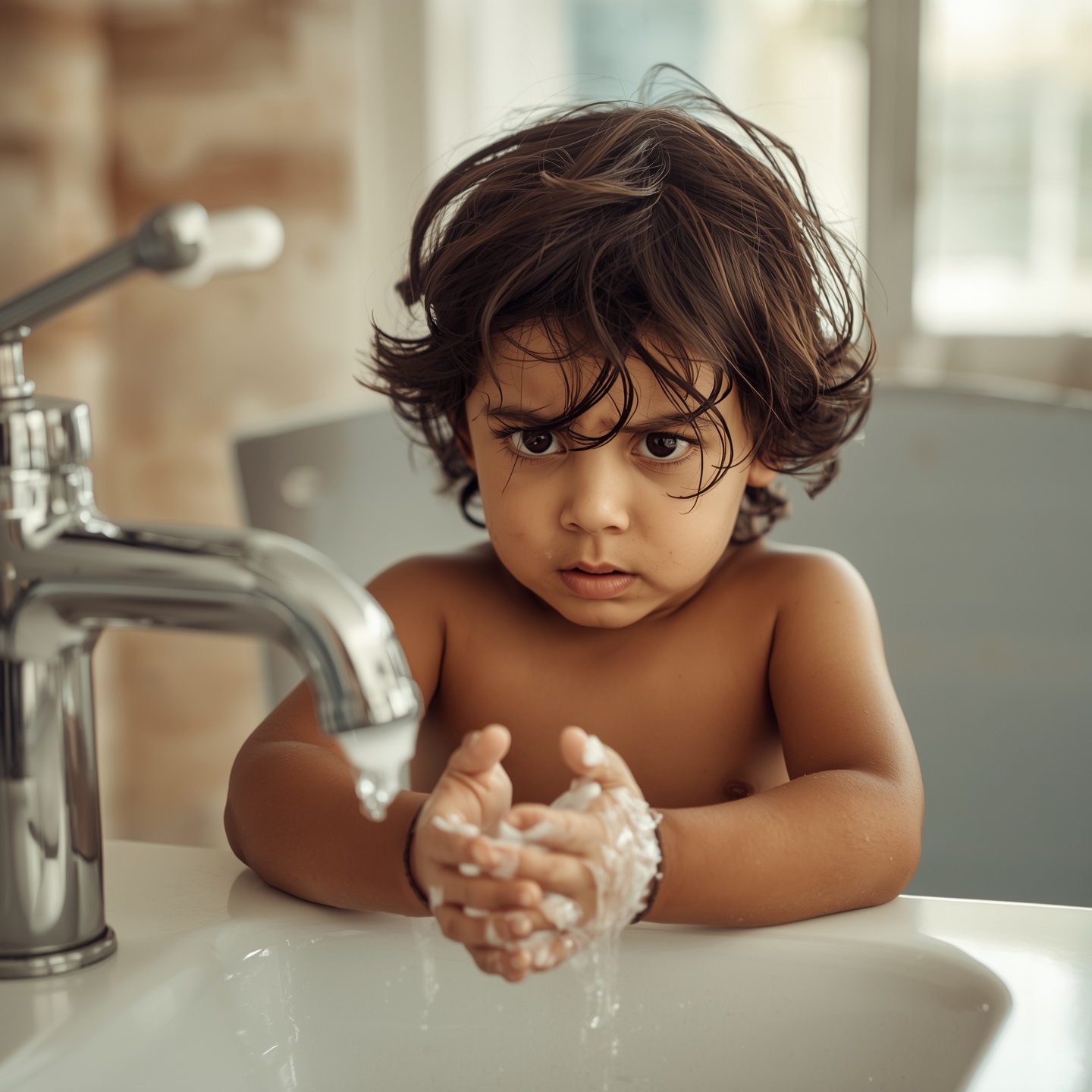Contamination OCD in Children, Obsessive-Compulsive Disorder (OCD) is one of the most misunderstood mental health conditions, particularly in children. Among its subtypes, Contamination OCD in children is one of the most common and distressing forms. Children struggling with this condition often live with constant fear of germs, illness, or being “contaminated.” This can lead to repetitive rituals such as washing, cleaning, avoiding contact with certain objects, or refusing to eat food touched by others.
Contamination OCD in Children, At Emotion of Life, led by OCD Specialist Therapists Shyam Gupta and Pratibha Gupta, we have worked with hundreds of children across the globe who faced contamination fears. Through our 16-Step OCD Recovery & Cure Program, which emphasizes daily sessions, ERP (Exposure and Response Prevention), and continuous monitoring, we have witnessed remarkable recoveries—without the use of medication.
In this article, we will explore the symptoms, challenges, treatment approaches, and real-life success stories of children overcoming contamination OCD with the Emotion of Life program.
Signs & Symptoms of Contamination OCD in Children
Contamination OCD in Children often show a wide range of physical, emotional, and behavioural symptoms. These may differ depending on their age, environment, and the severity of the condition.
Common Symptoms
- Excessive fear of germs: Constantly worrying that touching objects, people, or surfaces will cause illness.
- Cleaning and washing compulsion: Repeatedly washing hands until the skin is raw, or insisting on showering multiple times a day.
- Avoidance behaviours: Refusing to play outside, avoiding pets, or avoiding school bathrooms due to fear of germs.
- Checking rituals: Asking parents repeatedly whether something is “clean” or safe.
- Emotional distress: Crying, tantrums, or high anxiety when exposed to “contaminated” items.
In Different Age Groups
- Young Children (5–10 years): Avoid playgrounds, refuse to touch toys, or demand parents wash their clothes repeatedly.
- Pre-Teens (11–13 years): Rigid rules around handwashing, food cleanliness, or school hygiene; may struggle socially.
- Teenagers (14–18 years): May hide compulsions but still spend hours daily on cleaning rituals, impacting academics, social life, and self-esteem.
Different Situations Where Contamination OCD Appears
- At School: Refusing to borrow stationery, avoiding doorknobs, or skipping group activities.
- At Home: Long bathroom routines, demanding excessive cleaning, or refusing food prepared by others.
- In Social Settings: Avoiding birthday parties, playdates, or public events.
- In Religious or Cultural Contexts: Fear around ritual cleanliness or feeling “impure” if not washing repeatedly.
Why Early Treatment Matters
- Prevents the compulsive cycle from becoming deeply ingrained.
- Protects academic performance, social development, and emotional health.
- Avoids unnecessary avoidance strategies like skipping meals or school activities.
- Ensures smoother, faster long-term recovery.
CBT & ERP Therapy for Paediatric OCD
The first line of treatment for OCD, including fear of germs in children, is Cognitive Behavioural Therapy (CBT) with a focus on Exposure and Response Prevention (ERP).
Step-by-Step Breakdown of ERP
- Assessment: Understanding the child’s fears, triggers, and compulsions.
- Hierarchy Building: Listing fears from least to most anxiety-provoking.
- Gradual Exposure: Starting with small exposures under therapist supervision.
- Response Prevention: Encouraging the child to resist washing or cleaning rituals.
- Reinforcement: Celebrating small wins and building resilience.
- Parental Training: Teaching parents to avoid reinforcing compulsions.
- Long-Term Monitoring: Ensuring the child continues progress after therapy.
Unlike medication, which only suppresses symptoms temporarily, CBT and ERP provide children with lifelong skills to overcome Contamination OCD by addressing their thoughts and behaviours.
Emotion of Life’s 16-Step OCD Recovery & Cure Program
- Initial assessment & diagnosis
- Personalized treatment planning
- Psychoeducation for family
- Building child-friendly exposure hierarchy
- Daily ERP sessions
- Response prevention training
- Progress tracking & feedback
- Identifying cognitive distortions
- Mindfulness & acceptance practices
- Relapse prevention strategies
- Regular parent-therapist consultations
- Monitoring improvements daily
- Handling setbacks with structured plans
- Encouraging independence in child’s practice
- Review & strengthening progress
- Long-term follow-up care
Global Success of Emotion of Life
Children and families from India, the USA, UK, Middle East, and Australia have benefited from our structured, medicine-free approach. Parents appreciate the combination of professional guidance with daily practical support, which is rare in traditional therapy settings.
Success Stories
Aarav, 12 years old (India)
Aarav struggled with cleaning and washing compulsions from age 10, spending up to 3 hours daily washing hands and refusing school. After joining Emotion of Life’s program, Aarav reduced handwashing from 40 times to 5 times a day over 5 months, attending school regularly without distress.
Sophia, 9 years old (UK)
Sophia avoided friends, toys, and eating snacks outside home due to severe germ fears. Through online ERP sessions and parental training, she overcame avoidance in 6 months and now participates in school and playdates confidently.
Parent Reviews
Priya (Parent, India)
“My daughter battled contamination OCD for 2 years. At Emotion of Life, daily sessions and close monitoring worked wonders. Shyam Gupta and Pratibha Gupta guided us patiently, and today she is living free from compulsions.”
David (Parent, USA)
“We tried many therapies, but nothing worked as effectively as the structured program at Emotion of Life. My son is confident, attending school, and no longer trapped by cleaning rituals.”
FAQs on Contamination OCD in Children
What is contamination OCD in children?
Can it be treated without medicine?
How long does recovery take?
What role do parents play?
Is Emotion of Life’s program available online?
Conclusion
Contamination OCD in children can feel overwhelming, but recovery is possible. At Emotion of Life, our 16-Step OCD Recovery & Cure Program has helped countless children break free from compulsions using structured, medicine-free therapy. With expert guidance and daily support, children can live a life free from OCD.



